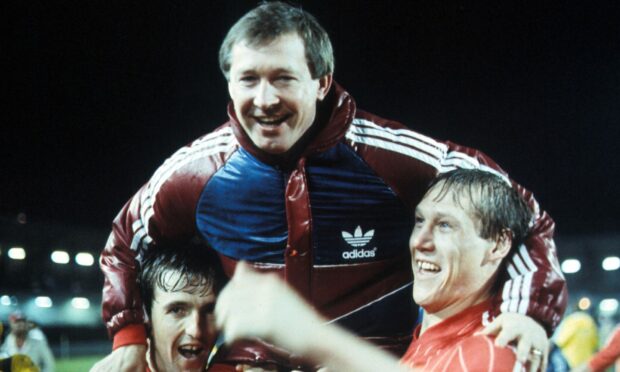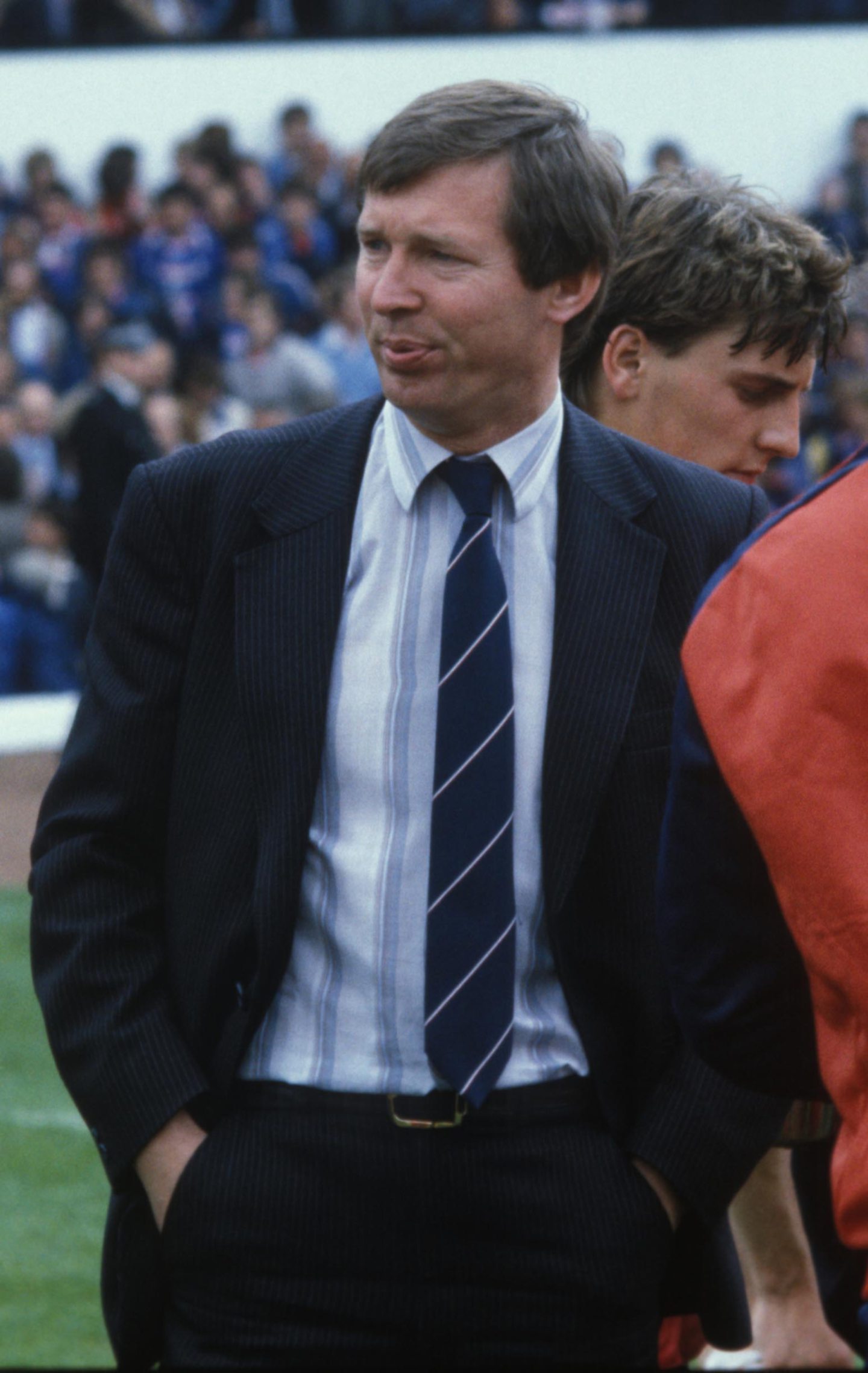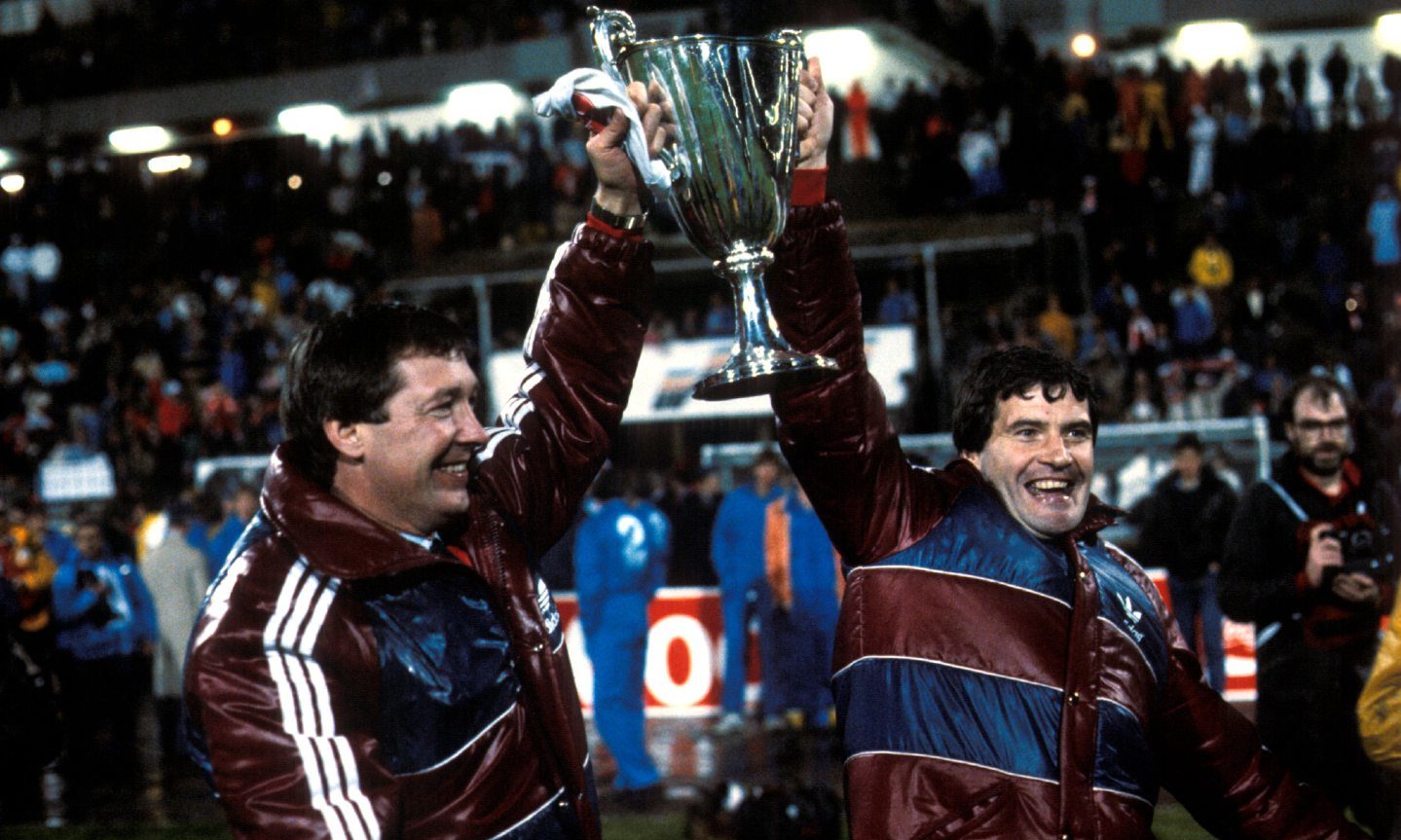Alex Ferguson wasn’t so much hot property as a towering inferno in the managerial stakes by the summer of 1982.
The Aberdeen boss had already orchestrated a wholesale transformation of the culture at Pittodrie, steered them to Scottish league title success, and their 4-1 demolition of Rangers in the Scottish Cup final in May made plenty of clubs across Britain sit up and take notice and wonder if the gallus Govan gaffer wasn’t the man to lead their revival.
Ferguson had built a squad in his own image: uncompromising, ambitious and determined to prove they weren’t just a force to be reckoned with in domestic terms, but also possessed the talent and the temperament to succeed on the European stage.
As we now know, their lofty expectations were realised in thrilling fashion when the Dons started to build momentum as the 1982-83 campaign continued and the end result was the greatest night in their history in Gothenburg against Real Madrid.
But, almost before a ball had been kicked, Ferguson received an intriguing phone call. Was he interested in taking charge at Wolves and spearheading the renaissance of one of the sleeping giants of the English circuit?
Ferguson travelled to Birmingham for talks
On the face of it, this was a beguiling invitation and Ferguson was keen to travel to Birmingham to discover more about what was on offer.
Yet, as he recorded in an early chronicle of his career, the journey from the north-east to the Midlands 40 years ago turned into a deflating experience – at least for any Wolves fans who might have hoped the Glaswegian could sprinkle his magic over Molineux.
He said: “I don’t think there is ever a right time to leave Aberdeen. However, in 1982, I was offered the chance to go to Wolverhampton Wanderers.
“Of course, Wolves had a marvellous tradition of success in the early 1950s. They were one of the first British clubs to sample European football and many will remember their great matches against [Hungarian champions] Honved and Moscow Dynamo.
“This was a big club with a big reputation, which had fallen on hard times. I gave the offer consideration for a day or two and decided, in fairness to both them and myself, to go down and meet their chairman and their directors.
“I must say that I was totally disillusioned by what I saw at Molineux. The stadium was in a state of disrepair and there was a general air of defeat.
“The most amazing thing was that there was not a soul in the ground that afternoon. To me, there was apathy and a lack of ambition or maybe just laziness. I couldn’t believe it: a full-time professional club which had no-one working in the afternoon. The [female] secretary was the only sign of life I saw at the stadium that day.”
Since his arrival at Pittodrie at the end of the previous decade, the stakhanovite Ferguson had ensured there was a buzz around the ground, which boasted a thriving youth scene and behind-the-scenes stalwarts who were toiling at the grassroots.
Molineux, in comparison, struck him as a decrepit museum, an organisation mired in the past. And matters didn’t improve when he eventually met the Wolves hierarchy.
He recalled: “The meeting with the directors was also disappointing. They began by asking questions about how I managed and I said: ‘Look, I could give you answers to what you want to know, but I thought I was down here to be offered a job, not be asked questions from a board who obviously don’t know anything about me’.
“I made the point that I already had a good job and was not necessarily looking for another one. The directors then finished their lunch and left and the chairman [Doug Ellis] remained behind and, when we were alone, he offered me the job.
“I told him that I would consider it, but I knew there was no chance of me accepting. The whole set-up was puzzling and, more importantly from my point of view, was just not on the same plane as Aberdeen.”
As it transpired, Ferguson’s abortive interview was a last-gasp bid by the Wolves board to turn back the tide which was in danger of washing them away forever.
Just a few months earlier, on July 2 1982, the front-page headline in the [Birmingham] Express & Star had proclaimed the dread words: “Wolves Have Gone Bust”.
This heralded the most dismal period in their entire history, with a further administration arriving in 1986 on the back of the team’s dramatic descent from the First to the old Fourth Division. Even from a distance, and with all the powers at his disposal, not even Fergie could have pulled off Houdini-style heroics at this place.
The rest is written in the stars. Ferguson swiftly returned to Pittodrie and his players produced sustained brilliance to defeat Bayern Munich on a memorable night as the prelude to the momentous 2-1 triumph over mighty Madrid and the birth of the Gothenburg Greats, whose names have become an indelible part of Dons folklore.
There were several further invitations from Scotland and England in the years ahead, including Ferguson being given the chance to manage his boyhood heroes at Rangers as the Ibrox club struggled.
Yet, despite the alluring financial incentives, he stayed where he was: a granite presence in the Granite City.
Eventually, of course, he was made an offer he couldn’t refuse by Manchester United and travelled to Old Trafford in 1986 for the launch of his second halcyon period.
But, at least, he made sure he kept the Wolves at the door!
More like this:
Our special comic book to celebrate Sir Alex Ferguson’s 80th birthday



Conversation